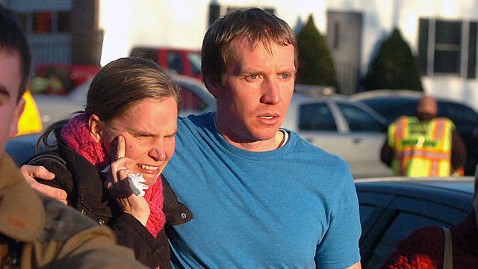BEIJING: Dozens of frustrated parents crowded into a Beijing office, surrounding an education official and brandishing copies of the constitution to demand their children be allowed to take an exam.
Mothers and fathers around the world fight to send their children to the best schools they can, in the hopes of drastically improving their futures.
But China's migrant families are victims of a decade-old residency system that denies urban incomers equal access to advantages from jobs and healthcare to the right to buy a home or car -- and education.
Chinese university admission is based on a single test, the "gaokao".
Cities such as Beijing that host China's best universities -- and large incomer populations -- only allow those with official residency permits, or "hukou", to take their exam and benefit from preferential quotas for places.
Around a third of the capital's 20 million population are migrants, but many of their families become split by rules requiring their children to go to their "home" provinces -- even if they have never lived there -- sometimes for years, to study for and take the test, which varies by location.
Even then, because of the quota system they will have to score higher to win places at top schools.
"Either you let the country share in your education resources or you accept the reality that outsiders are stuck in your education gutter," said Du Guowang, a 12-year Beijing resident from Inner Mongolia.
He and dozens of parents packed Beijing's education bureau each week hoping -- in vain -- it would let their children take next year's exam. But registration closed last week.
"This will directly affect their studies and their future prospects so of course it's unfair," said Xu Zhiyong, a prominent legal activist who has assisted the parents.
Over the past three decades more than 230 million people -- four times the entire population of Britain -- have moved to China's cities in a phenomenal mass migration.
The hukou system restrictions date back to 1958, when the government sought, among its many controls, to designate where people should farm in rural areas, and work or live for those in towns.
It has loosened the rules in recent decades to encourage urbanisation, and acknowledges the need to better accommodate newcomers -- especially as resentment mounts over China's widening rural-urban inequality.
At a key gathering of the ruling Communist Party last month, President Hu Jintao urged officials to "accelerate" hukou reform and work to "ensure that all permanent urban residents have access to basic urban public services".
But bigger cities are less willing to share residency or benefits, fearing doing so would burden their already strained resources and spur a new influx.
Some point to congested roads and overcrowded hospitals to argue that cities cannot handle larger loads.
But critics say the system is discriminatory.
Full reform would need years, but should begin sooner to defuse resentment, said Wang Zhenyu, deputy director of a public policy research centre at China University of Political Science and Law.
"From the basics like education and healthcare to social security to employment to buying a home or car, hukou-based discrimination covers every aspect," he said, "Your hukou will affect you your entire life."
Despite years of lobbying national and city education officials, the migrant parents in Beijing have received noncommittal answers -- along with occasional warnings. Their website, where they posted their demands, stopped working recently.
"Whatever we ask, it's always: 'We are studying the matter and are not ready to respond'," Du said of the official who usually receives them, "We have memorised his words."
The national education ministry has urged local governments to address the issue, and less-competitive areas have agreed to accept outside test-takers, but the capital, with its highly prized schools, has yet to act.
A Beijing education bureau official told AFP to wait for any policy announcements, adding that the office was open to parents once a week for a few hours to let them present their case.
But a mother, who wanted to be identified only by her online name "Hu Yang", said her daughter's teacher sent her a message a few weeks ago to stop making trouble.
She said she told her daughter: "I'm not making trouble for you to be able to go to school. It's for all children fighting for the right for equal education," she said.
"When they grow up they will contribute to society and to the country."
- AFP/fl













